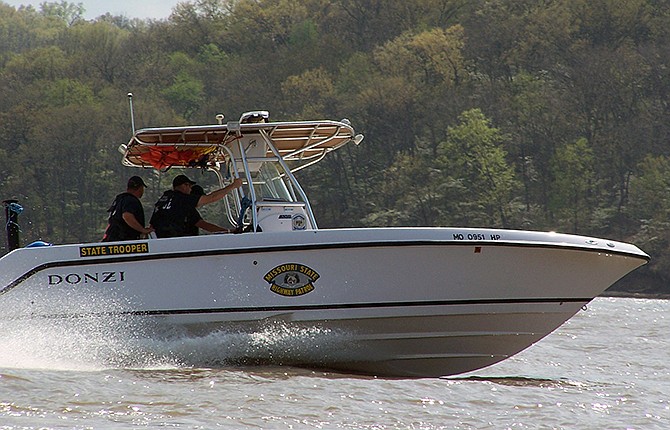Missouri House members on Wednesday began studying the effects of merging the state Water and Highway Patrol in 2011.
The Interim House Review Committee on the 2011 Water Division Merger met with the commanding officers of the Missouri Highway Patrol and retired officers of the previously separate Missouri Water Patrol.
The topics of discussion for the groups included the effects of the 2011 merger in terms of cost, quality of service and training. This is one of four meetings planned for the committee, led by Rep. Diane Franklin, R-Camdenton. The next is set for 11 a.m. Oct. 14 in the Osage Beach City Hall.
The committee questioned and spoke with the high command of the Highway Patrol, retired officers from the Water Patrol and current officers with Highway Patrol who worked for the Water Patrol before the merger.
At the beginning of the meeting, Col. Ronald Replogle said he will not make statements or answer questions about the drowning of 20-year-old Iowa native Brandon Ellingson while handcuffed and in the custody of a state trooper. Franklin had said earlier that the idea of investigating the merger was prompted by Ellingson's death.
Replogle said the merger has had some benefits, which include having officers trained to work highways and waterways, better technology available to the water patrol divisions, and more officers to help with disasters such as floods, tornadoes and civil unrest as in Ferguson. He said two SWAT members who also serve in the Water Patrol division were sent to Ferguson to help.
In response to a question by Franklin, Replogle said the Water Patrol would have helped with disasters before the merger. However, emergency responses ares more easily carried out with the efforts of police under one command, Replogle said.
Later, a retired Water Patrol Col. Rad Talburt testified the Water Patrol had officers available for the MHP to help with disasters or anything else before the merger.
Talburt, along with other retired members of the Water Patrol, brought up questions of finance to the committee after mentioning research has led them to believe the merger has cost more money than it has saved. After the meeting, Franklin said one of upcoming three meetings will focus solely on the budget to see if their claims were valid.
Highway Patrol Sgt. Randy Henry and multiple Water Patrol retirees suggested the Highway Patrol make a new troop of only full-time Water Patrol officers, instead of the "hybrid" officers who cover both the road and water. That would increase the number of officers dedicated to the Water Patrol during boating season. The extra officers could switch back to road work during the winter, Henry suggested.
Replogle later addressed this by saying any Highway Patrol sergeants worth their salt would make the same recommendation to add more manpower to the police force. He also told one committee member that given 200 more troopers, he would solve the Water Patrol's problems and more. Highway Patrol Capt. Greg Kindle said he believes the plan the Highway Patrol has in place now for the Water Patrol will be successful.
One of the more shocking revelations, Franklin said, was that none of the nine troop commanders are trained in Water Patrol protocol, nor is it mandatory for them to train in these fields. Replogle responded saying he does not know how to fly a helicopter, but he is still an effective commander for pilots of the Highway Patrol.
The committee asked multiple questions about the training practices of the Highway Patrol's Water Patrol Division. Patrol commanding officers had provided information for the committee about the subjects taught and the amount of time taken to train. Asked about Ellingson's death, Kindle said none of the officers go on the water until they are trained. After this summer's drowning, Trooper Anthony Piercy said he had not been trained on how to properly put a life vest on a handcuffed prisoner.
"It doesn't escape us that they are not really answering the questions about training," Franklin said. "I respect all of the officers and this (the merger) was not their decision or their choice, but they have to deal with the legislation that was passed."

